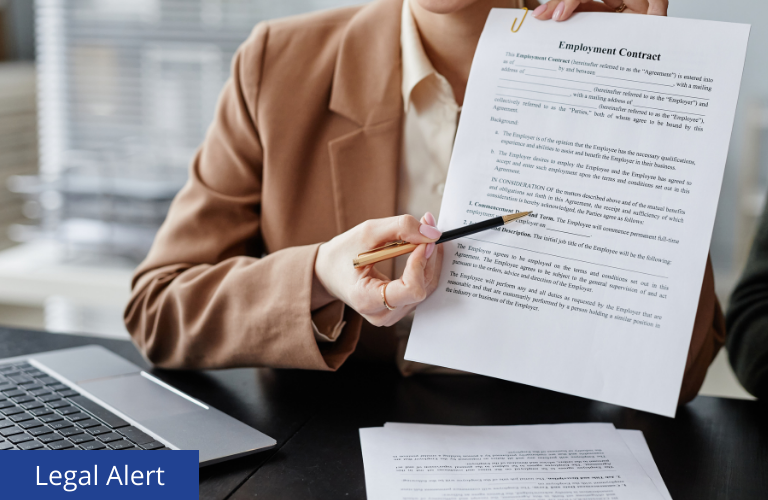
On October 7, 2024, the General Counsel of the National Labor Relations Board (“NLRB”) issued a memorandum (the “Memorandum”) to all NLRB Regional Directors, Officers-in-Charge, and Resident Officers (i) expanding upon the General Counsel’s previous conclusion in a May 30, 2023 memorandum (See NLRB Non-Compete Alert dated June 13, 2023) that most non-compete provisions contained in employment agreements and severance agreements violate the National Labor Relations Act (the “Act”), (ii) concluding that so called “stay-or-pay” provisions, under which an employee is obligated to pay their employer if they separate from their employment, also violate the Act, and (iii) outlining the… Read more
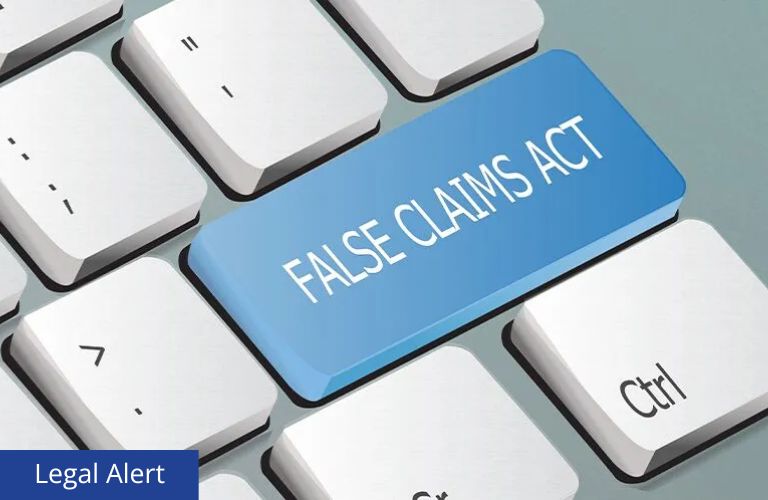
The False Claims Act (“FCA”) imposes civil and criminal liability on parties that knowingly present or cause to be presented a false or fraudulent “claim” to the government.[1] Enacted during Reconstruction in 1863, the scope of the FCA is broad, impacting persons and businesses in numerous fields. Claims subject to the FCA include direct requests to the government for payment, reimbursement requests under federal benefits programs, and various payments made to the government pursuant to various statutory or contractual obligations. Although civil claims under the FCA may be asserted by the Government,[2] the Act also authorizes private parties, called “Relators,” to… Read more

Frontier Airlines, Inc. (“Frontier”), AMCK Aviation Holdings Ireland Limited (“AMCK”) and Carlyle Aviation Management Limited (“Carlyle”), together with some of its affiliates are involved in a series of three related litigations, the first of which began back in March 2020. In late June of this year, a decision came down in the first of the three litigations. In that decision (which is on appeal), the judge found in favor of Frontier against AMCK for breach of contract in respect of a sale leaseback arrangement and found former AMCK subsidiaries, now subsidiaries of Carlyle, also liable for AMCK’s breach of contract. … Read more
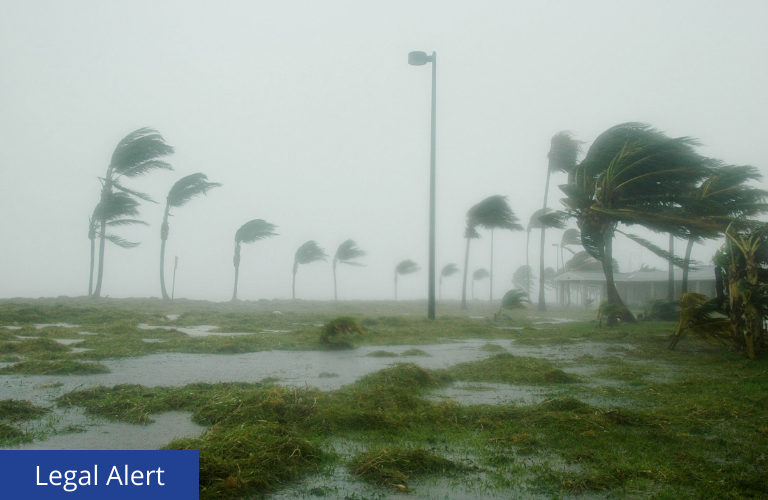
As Hurricane Helene makes landfall in the Southeastern United States, contractors will be halting work on projects throughout the region while awaiting the passage of the severe weather event. When the rain and wind subside, disputes may arise on construction projects due to the damage and after-effects that come with a severe weather event. In the event a dispute does arise on a project following a severe weather event, the first place the parties should look to determine obligations is a contract’s Force Majeure Clause. Force Majeure Clauses typically allow a contractor to request a time extension due to the… Read more
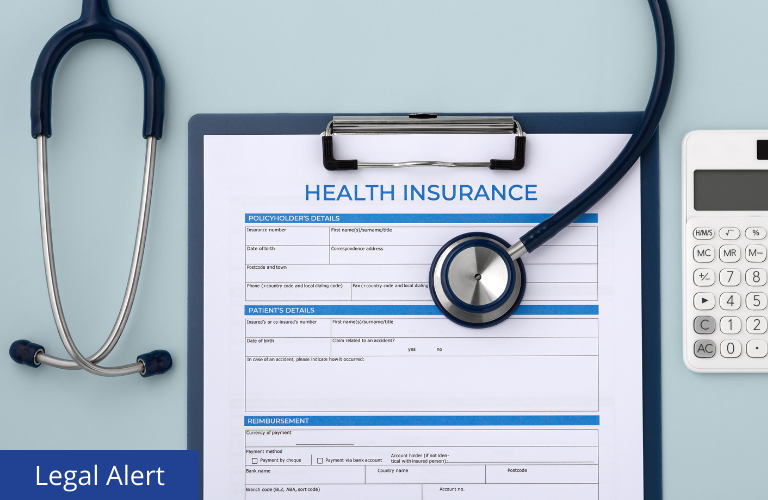
On September 9, 2024, the U.S. Departments of Health and Human Services, Labor, and the Treasury (collectively, the Departments) released much-anticipated final rules under the Mental Health Parity and Addiction Equity Act (the Mental Health Parity Act, or Act), specifically addressing the requirement that plans document their compliance with the Act through a detailed written comparative analysis of each nonquantitative treatment limitation (NQTL) that applies to mental health and substance use disorder (MH/SUD) benefits. The final rules generally apply to group health plans on the first day of the first plan year beginning on or after January 1, 2025. However,… Read more

On August 23, 2024, in Restaurant Law Center v. U.S. Department of Labor, No. 23-50562 (Aug. 23, 2024), the United States Court of Appeals for the Fifth Circuit struck down a final rule promulgated by the U.S. Department of Labor (“DOL”) that restricted when employers may claim a tip credit for tipped employees under the Fair Labor Standards Act (“FLSA”). The FLSA permits employers to take a tip credit when paying the wages of any tipped employee. In essence, the tip credit enables employers to pay tipped employees $2.13 per hour, as opposed to the current federal minimum wage of… Read more
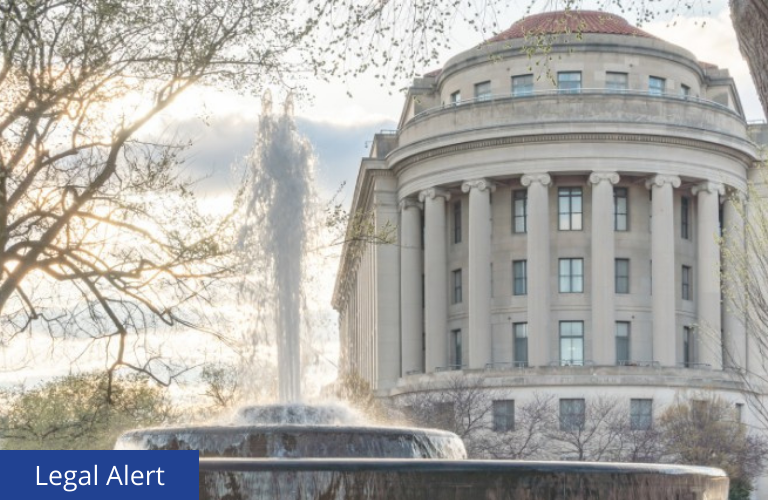
Late Tuesday afternoon, the United States District Court for the Northern District of Texas issued a nationwide injunction prohibiting the FTC from enforcing its Non-Compete Rule (“FTC Rule”). The Court set aside the FTC’s Rule, finding that the FTC acted beyond its rulemaking authority and clarifying that the FTC Rule shall not be enforced or otherwise take effect on September 4, 2024. As we previously noted in an earlier Legal Alert (The FTC’s New Rule Bans Majority of Non-Compete Agreements – SGR Law), the FTC Rule would have required employers that have active non-compete agreements with their workers to notify… Read more

Federal administrative law is largely about policing delegations of power from Congress to Executive Branch agencies, and the administrative law concept of “deference” is about delegation of interpretative power over ambiguous law. That is, courts need to decide what it means when lawmakers leave ambiguity in a statute or regulation. To illustrate, imagine a simple rule like “no vehicles in the park.” See H.L.A. Hart, Positivism and the Separation of Law and Morals, 71 Harv. L. Rev. 593, 607 (1958). A rule like this could appear in a statute passed by a legislature; it could also appear in an agency… Read more

We are pleased to inform you about a recent development in the Illinois Biometric Information Privacy Act (BIPA) law that could significantly impact businesses using biometric data. Last week, in the case of GT v. Samsung Electronics America Inc. [1] the Northern District of Illinois set a precedent that is favorable to defendants, providing a clearer framework for compliance and potential defenses under BIPA. Case Background: In this case, the plaintiffs alleged that Samsung Electronics America Inc. violated BIPA by collecting and storing biometric data on personal electronic devices (cell phones and tablets) without obtaining informed consent. The plaintiffs claimed… Read more

In Loper Bright Enterprises v. Raimondo, the Supreme Court eliminated the Chevron doctrine, which for 40 years directed federal courts to “defer” to Executive Branch agencies in interpreting federal statutes. 144 S.Ct. 2244 (2024). During that 40-year period, federal agencies promulgated countless regulations touching a wide swath of public and private affairs. Indeed, the Code of Federal Regulations (“CFR”) currently spans over 200,000 pages. Illustrating Chevron’s importance, in a 2015 survey of agency personnel, ninety percent of Executive Branch rule drafters self-reported that Chevron played a role in their drafting decisions. Christopher J. Walker, Inside Agency Statutory Interpretation, 67 Stan…. Read more











